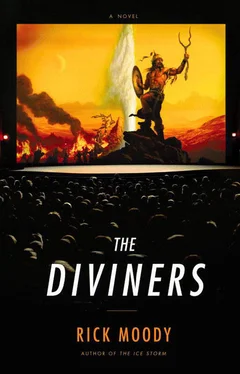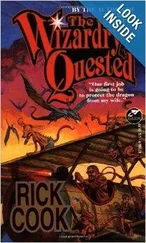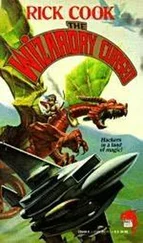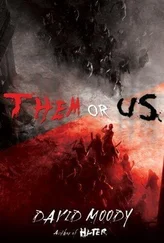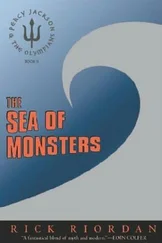“Is this a —”
“Not a motion picture, actually. It’s a. . well, it’s sort of a television thing, really. It’s a. . miniseries.”
“A what?”
“Just listen for a second. It’s not every day that I have a conversation like this, Randall. Let me tell you a little bit about what’s really going on. Let me tell you a little bit what it’s like. My name has been in the papers lately, and not in good circumstances. The kind of coverage that you don’t exactly want to get. And that sort of coverage has not exactly endeared me to my family, if you see what I mean. I’m about to go film a movie in the desert, Randall, a movie called The Tempest of Sahara, which has to be one of the dumbest scripts I’ve ever read. And when I’m through filming there, in three months, and I come back to the wreckage of my married life, I don’t exactly know what I’ll find. The production company that I helped found is at death’s door, money problems, embezzlement; I have every bit of bad luck you could think of.
“Still, I had this idea about a month ago, for a miniseries. About diviners. Diviners, Randall, you know, the guys with the, with the —”
“Forked sticks.”
“And this prompted me to read a little bit about the arid places of the world, Randall. It started out as a joke. The whole story started out as a joke. I guess I can come clean, Randall, because you seem like a guy who could, who has been. . I feel like you’ll understand, and the thing is, the story started as a joke to impress someone, Randall. It was spun out on a cocktail napkin in a bar. But then I started reading about the deserts, about the American West, and about the struggle for water, which, you know, is a struggle as old as man. There’s always been this class of magicians, Randall, and they’re, like, they’re the priest class in the desert, they get to wear the best outfits, these ones who know where the water is; I started to see that there was always something magical happening in the desert, there was this awesome deprivation and savagery going on, and then on the other hand, there were these little moments of grace, from generation to generation, whenever the diviners were on the scene, and that’s when I got the idea for this series. Once I started writing I couldn’t stop. The words were just pouring out, Randall, I never had an experience like this before, I’m not. . I’m probably not really an artist. I’m not a guy who lies awake at night with bits of inspiration floating through my head. But once I got the idea to start writing this story, Randall, I couldn’t think of anything else. It was like I was the desert, like I was the parched landscape, and the rainfall, the storm was breaking over me, for no reason other than I was in a bad patch and I was being given this chance to make something out of it.”
The movie star’s earnestness is commanding enough that Randall Tork can hardly look away. He refills the wineglasses. The movie star drinks his down as though it really were grape juice. Randall, who normally tastes the stuff and spits it out, feels somehow compelled to keep up, as the movie star begins to spin out his deluxe plot summary. Can anything on earth truly be duller than a movie or book digested by some brainless hunk of protoplasm who didn’t read carefully in the first place? Randall would rather die than listen to plot summary. But that was before he got pitched by a movie star. Now, as the movie star tells him that the story begins at the dawn of time and moves up through the Dark Ages, into the Crusades, he’s thoroughly charmed. The movie star could give the plot summary of the new post-deregulation phone book, and Randall would think it rather adorable. This is how the colloquy goes, until something really special happens.
What is the thing that happens? The thing that happens is that the movie star begins to tell Randall Tork about the discovery of Las Vegas. What was Las Vegas? Las Vegas was nothing; it didn’t exist. Nothing existed, for the Spanish, on the road to Los Angeles, except a dozen days or more in the open sun with just the brackish water that the wayfarers managed to carry with them along the way. Many were lost, as the movie star tells it, many were lost, and that’s without bothering to mention the assaults of the natives, who came from out of limitless nothingness where no one should have lived, to surround each and every band of Spaniards, stealing their women and scalping their men. Sometime in the early nineteenth century a young Spanish adventurer, Rafael Rivera, on a journey across this very desert, decided that the natives had to be coming from somewhere, from some verdancy out there in the wasteland. There had to be water; there had to be waving fields. There was no other explanation. And Rafael Rivera set out across the desert with courageous confederates. No one expected anything of him, only that they would later find his shiny skeleton, picked clean. But what did Rafael find? He found an oasis, and he named it for its waving fields, Las Vegas. It cut the trip to Los Angeles in half because it was no longer necessary to go around.
A beautiful little story, of course, and as part of the larger narrative, it would necessarily include a dowser as one of the courageous confederates. But what piques the interest of Randall Tork, of course, is the role of Rafael. In general, the rest of the story is a little silly. Who cares if there were other, older explorers along for the ride? Who is going to play Rafael Rivera in this miniseries? It seems completely natural to him that Raoul, his intended, his plighted troth, would be perfect for the part, since he is already Hispanic, and he is beautiful to behold, and the gravity of his illness would look entirely appropriate out in the merciless desert. So overwhelming is the idea of trying to cast Raoul in the role of Rafael that he doesn’t at first pay attention to what comes next.
“The thing is, Randall, you know and I know that the world hates a guy with two ambitions. The world wants me to do the one thing, and that’s fire off blanks from an automatic weapon. Especially with all the trouble I’ve gotten myself into recently. Everywhere I go lately, there’s a guy with a beer gut and a telephoto lens waiting for me to pick my nose. I had to change cars twice and duck into a men’s room just to get here without anyone following me. And so it’s just not for me to try to be the writer on this script, even though I’m really proud of what I’ve come up with. I don’t want to go through the whole process of coming up with a pseudonym or any of that nonsense. I want someone to flesh out the story for me, Randall; I want someone to be the writer for me. I want someone who really has something, who really has the gift, who really has the inspiration that maybe I have had this week but that I’ll probably never have again. I want someone who has the real vision to do this for me, to be the name on the poster for The Diviners. You could work on the script with me if you want, Randall, it’s really up to you. You’d get a cut on the whole project and a credit that you can use to your advantage later on if you want. You’ve got a name and a reputation, a great reputation among the people who could really help to finance a project like this, and you’re a natural, so why wouldn’t you write a script?”
Why wouldn’t he, indeed? Is he not Randall Tork, the greatest wine writer in history? And has he not always, in the back of his mind, known that one day he would turn his abilities toward something that served as a more likely platform for world domination? His editor has often told him he has a novel in him, for example, and if not a novel, why not a thirteen-episode miniseries, with a three-hour pilot, that goes from the dawn of man up to Las Vegas? He is a natural, really, as long as one point can be negotiated. And that point is Raoul.
Читать дальше
